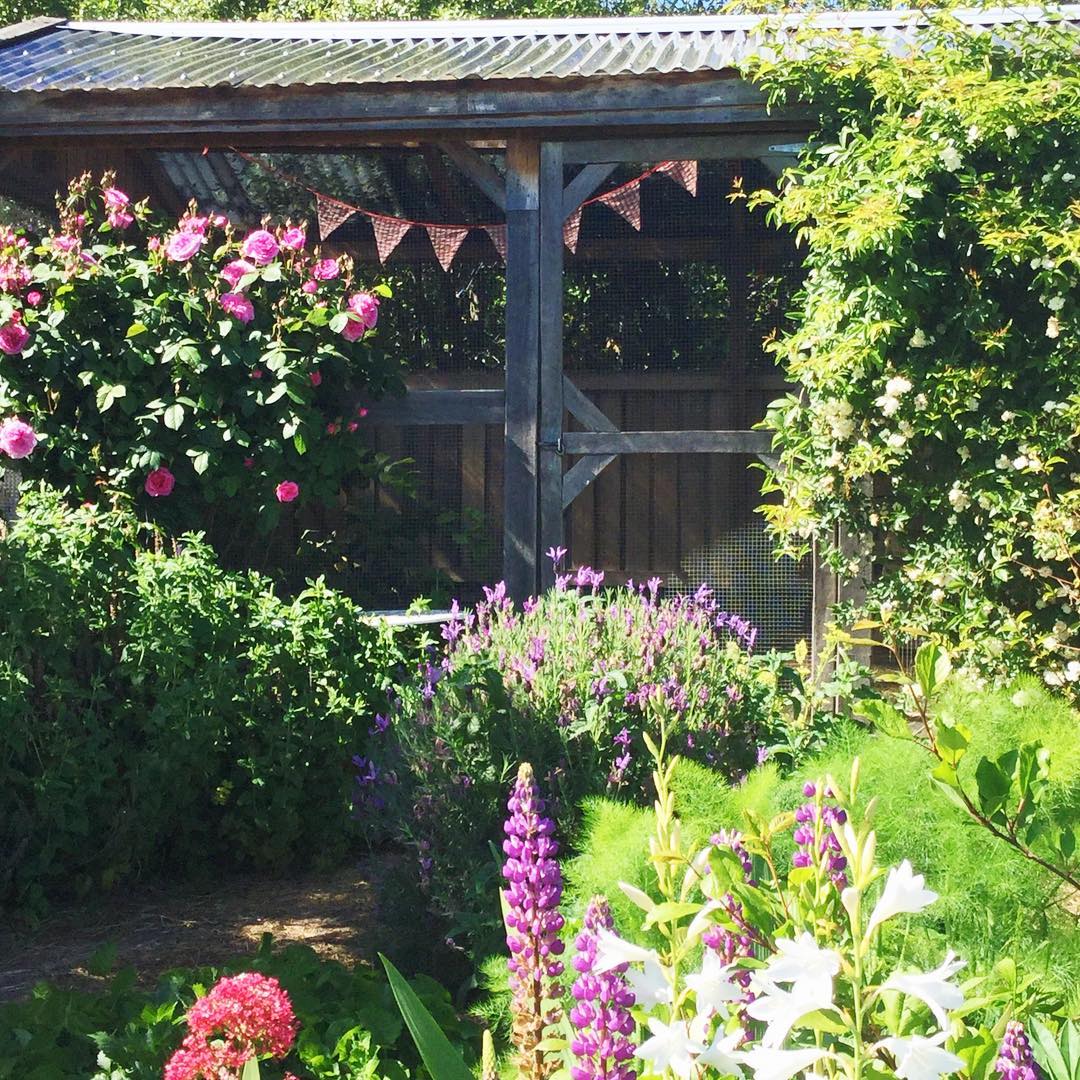
Our big Hen House & yard. Home to our sweet Silkie & Pekin hens & Little Dutchie a Dutch Bantam.
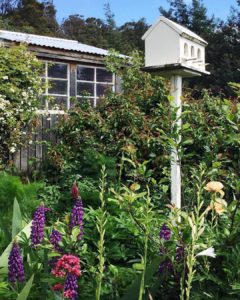
Springtime in the Hen House yard.
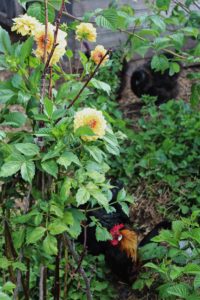
Little Dutchie is the only Dutch Bantam in this yard, about the same size as a pigeon he doesn’t do any damage.
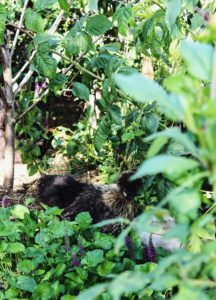
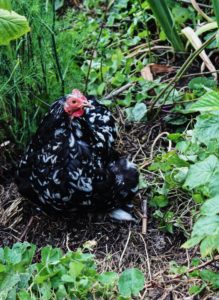
Percy Pekin! There are lots of spots for the hens to rest, have a dust bath and shelter from the hot sun.
Like secret passageways the Silkies & Pekin’s have made pathways underneath the canopies of the herbs, plants, trees and raspberry canes, the overhead canopy protects from unwelcome hawks that sometimes visit our garden and would like our hens on their menu.
We have one of the drinking bowls placed in the shade underneath the Ornamental Quince where the hens always have their afternoon nap. They stay in the cool and don’t have to go looking for their water bowl walking around during the heat of the day.
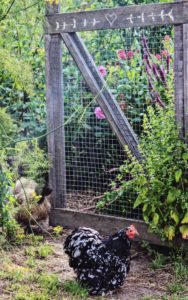
If you are interested in providing a garden for your hens doing some research on beneficial herbs for hens is helpful. By planting beneficial herbs in the Hen House yard the hens can self medicate. We don’t apply any pesticides/medication/dust/chemicals to the hens or their hen house.
When we are in the Kitchen Garden we open the gate and the little hens have a fossick around on the lawn, it’s a good opportunity for them to have some extra green pick, they have also made a dust bath under the bench seat, (totally not convenient when you are sitting on the bench and they are flapping the dust from their wings underneath you!) and they do like to have a sticky beak at what we are doing and follow us around the garden, especially Percy the Pekin but I think you already guessed that!
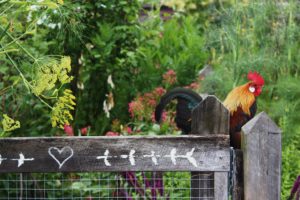
Is there anything better than having feathered companions in the garden?!
Jude x
Our Hen House Yard.
January 9, 2019
[…] You can get all the tips and tricks I found work the best to stop chooks scratching everything up here. […]